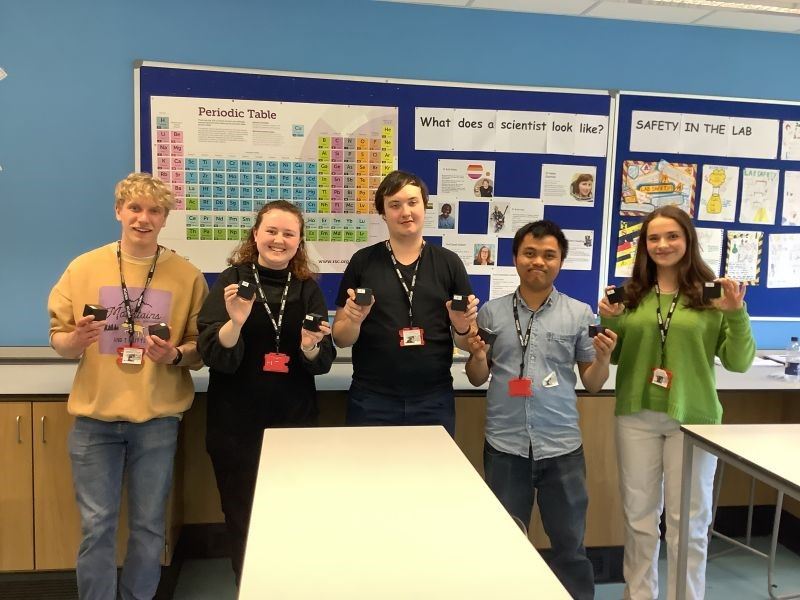The ChemBAM team inspired year 9 students through a project that linked areas of the school curriculum to current scientific research.
ChemBAM at Turves Boys’ School was a Royal Society of Chemistry-funded project run by members of the University of Birmingham chemistry department. The project aimed to engage three year 9 classes from Turves Green Boys’ School in monthly chemistry activities (four sessions, each an hour long).
The hope of this project was to increase the students' enjoyment of chemistry, inspire them to take the triple science GCSE option, and give University of Birmingham chemistry students the opportunity to develop their science communication skills.
Turves Green Boys School was chosen because the students are predominantly from a white working-class background, a highly underrepresented demographic in higher education. Furthermore, a high proportion of the pupils are from low-participation neighbourhoods and relatively few study STEM subjects to a high level. Therefore, raising the students’ aspirations by making them aware of the higher education and career options available to them is important.
The activities were designed by the ChemBAM team and aim to showcase the world of chemistry by linking areas of the school curriculum to current scientific research. At the end of each session, there was a short question-and-answer session with the volunteers, aiming to inform and excite students about university life and chemistry-related research and careers.

The impact the project had on the school pupils was evaluated by comparing survey data from the first and last visit as well analysing written answer questions from a randomly selected cohort of students. The responses to the survey questions were generally very positive with students reporting an increase in confidence to perform practical work and a better knowledge of what chemistry research entails. It was also pleasing to see comments such as “it expanded my knowledge of chemistry” and “I learned what [qualifications] you need to get different jobs” in response to the written answer questions. The latter quote indicates that the project raised awareness of some future options available to students.
Volunteers consisted of a mixture of undergraduate and postgraduate students and postdoctoral staff. Feedback was informally received from the volunteers after each session. All volunteers were positive about their experience. One PhD student commented that it was “interesting to adapt the knowledge gained through many years of studying and change it into short, fun and exciting lessons to give students a glimpse into the world of science”, whilst another student said that the activities “definitely improved my science communication skills”. By offering numerous volunteering opportunities and introducing some students to outreach for the first time, the outreach culture in the University of Birmingham School of chemistry has been significantly heightened. Students are looking forward to running and volunteering at more outreach events in the new academic year.
I would like to thank the Royal Society of Chemistry for funding this project. The grant enabled material to be purchased and allowed us to provide travel and lunch for volunteers. This allowed the project to run successfully. I would also like to thank my supervisor, Dr Zoe Schnepp, who was an integral part of planning and running these activities. Zoe initiated ChemBAM to increase the public’s confidence in discussing chemistry. In doing so, she constructed most of the experiments and teaching material that were used in the project. I would also like to express gratitude to the volunteers who bought the experiments to life and to Dr Ruth Patchett and the rest of the Turves Green Boys’ School staff who timetabled the activities into the students’ schedules and helped run the sessions.



